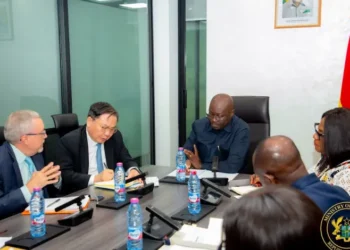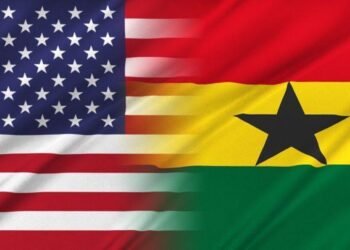The International Monetary Fund (IMF) has told Ghana about conditions under which it will access the second tranche of the bailout fund.
Ghana’s economic trajectory is at the forefront of international attention as it engages in discussions with the International Monetary Fund (IMF) and the Official Creditor Committee to secure the second $600 million tranche of a three-year $3-billion Extended Credit Facility program.
The successful release of this tranche hinges on the resolution of ongoing negotiations between the Ghanaian government and official creditors, a crucial step emphasized by the IMF.
As highlighted by Julie Kozack, Director of the IMF’s Communications Department, recent talks between Ghanaian authorities and the Official Creditor Committee are progressing. Kozack expressed optimism about reaching an agreement soon to expedite the program’s progression to the Board.
Acknowledging Ghana’s steadfast commitment to policy and reform under the three-year program, Kozack noted positive indicators of economic stabilization. Growth in 2023 has proven more resilient than initially projected, inflation has decreased, and both fiscal and external positions have shown improvement. Additionally, exchange rate volatility has exhibited a notable decline.
Kozack disclosed that on October 6, 2023, the IMF team reached a staff-level agreement on the first review under the program. Upon the completion of this review by the Board, Ghana is expected to gain access to the first $600 million in financing.
However, she stressed that the timely completion of the review is contingent upon official creditors and the Ghanaian authorities reaching an agreement on a debt treatment. This treatment must align with the program’s objectives and be in accordance with the financing assurances provided by creditors in May 2023.
Challenges and the Path Forward
The emphasis on a debt treatment agreement underscores the complexities of navigating Ghana’s economic landscape. Balancing the requirements of the IMF program with the expectations and obligations to official creditors poses a challenge that needs to be carefully addressed. The successful resolution of these negotiations is pivotal not only for securing the next tranche of financial assistance but also for demonstrating the nation’s commitment to sustainable economic reforms.
The successful resolution of the ongoing discussions and the subsequent release of the $600 million tranche will play a pivotal role in shaping Ghana’s economic landscape. This financial injection, coupled with the positive indicators of economic stability, could provide Ghana with the necessary resources to address pressing challenges and implement vital reforms.
The nation’s commitment to achieving a debt treatment agreement underscores its dedication to responsible fiscal policies and sustainable economic practices. As Ghana positions itself for the next phase of economic growth, the outcomes of these negotiations will not only influence its immediate financial standing but will also set the tone for the broader trajectory of the country’s economic resilience and development.
Ghana’s ongoing discussions with the IMF and official creditors paint a mix picture of the nation’s economic journey. The positive signs of economic stabilization and growth are encouraging, but the challenges inherent in the negotiation process highlight the delicate balance required to align competing interests.
As Ghana strives to navigate these complexities, the international community watches closely, anticipating positive outcomes that will not only bolster Ghana’s economic resilience but also serve as a valuable case study for nations facing similar financial intricacies.
READ ALSO: Senya Bereku Residents And Chiefs Clash With Military Over Disputed Land





















